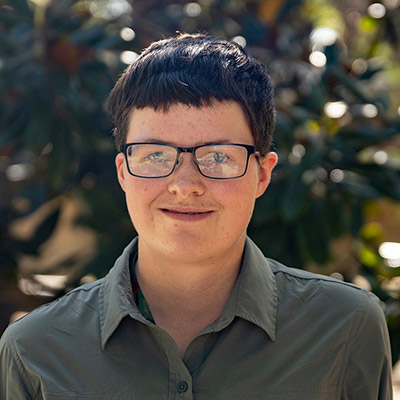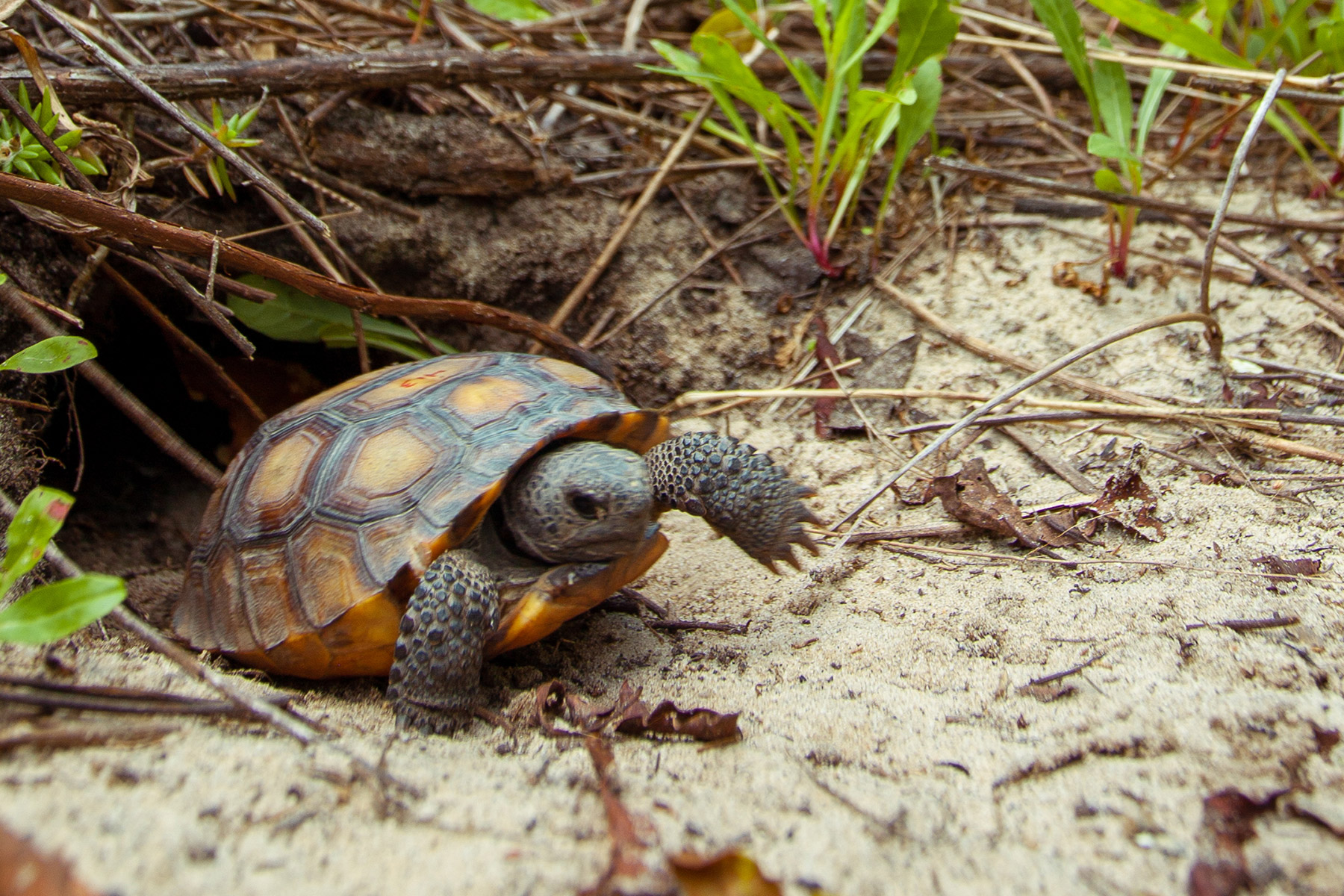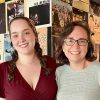Karin Ebey was competing against graduate students from colleges and universities across the Southeast. But if the past was any clue, she was up for the challenge.
An Eckerd College junior biology, chemistry and mathematics student from Los Alamos, New Mexico, Karin recently received one of two J. Larry Landers Student Research Grants from the Gopher Tortoise Council that will provide $2,000 to help fund her research on the reptiles.
As the Florida Chapter of The Wildlife Society points out, the well-being of the gopher tortoise, which is found mostly in the Southeastern U.S., is important not only because of what it is but because of where it lives. The tortoise is designated as a keystone species because its burrows provide shelter for at least 350 additional species.

Karin Ebey ’25
“Gopher tortoises face many challenges—including loss of habitat, harmful forestry practices, disease, predation and use for food by humans,” according to the Wildlife Society’s website. “Florida harbors the largest portion of the population by far, and tortoises reside in parts of all 67 counties. It has been estimated that the population has declined at least 50% (and perhaps up to 80%) during the last three generations. Florida listed it as [a] Species of Special Concern in 1979 and a State-designated Threatened Species in 2007.”
The grants, the Council notes, are intended to support original, student-led research on gopher tortoise biology/ecology or any other relevant aspect of upland habitat conservation and management within the range of the gopher tortoise in the Southeastern U.S.
Karin, who last April was awarded a prestigious Barry Goldwater Scholarship and three days later received a National Oceanic and Atmospheric Administration Ernest F. Hollings Scholarship, explains that fieldwork for the project will begin in the fall at Boyd Hill Nature Preserve in St. Petersburg and will include “trying to understand the mating system of gopher tortoises through analyzing their movement patterns and mating opportunities.
“They are a keystone species and threatened, which makes it important to understand their ecology and then use that information when you’re thinking about conservation,” she adds. “The grant will enable me to buy the equipment needed to do the research, and it gives me the confidence that I’ve designed a good project.”
The Gopher Tortoise Council was formed in 1978 by a group of Southeastern biologists and other citizens “concerned with the decline of the gopher tortoise,” the Council’s website explains. “The goals of the Council are to offer professional advice for management, conservation and protection of gopher tortoises; to encourage the study of the life history, ecology, behavior, physiology and management of gopher tortoises and other upland species; to conduct active public information and conservation education programs; and to seek effective protection of the gopher tortoise and other upland species throughout the Southeastern United States.”
The Council will hold its annual meeting at Eckerd College in November. At the Council’s most recent meeting, Celina Ceballos ’21 won the Best Student Presentation award for her thesis research on gopher tortoises while she was at Eckerd.
Since the Landers grant program began in 1989, one other Eckerd College student received the award—William Hawthorne ’21 in 2019. He is now an aquatic ecologist at the Florida Springs Institute in Gainesville.
“This is a grant program that’s geared to graduate students, but it’s also open to undergrads,” explains Jeffrey Goessling, Ph.D., associate professor of biology at Eckerd who was awarded the same grant in 2015 when he was in graduate school at Auburn University. “Karin was competing against mostly graduate students.”
Goessling has had Karin in three of his classes since she arrived at Eckerd, and she will be doing her senior thesis in his lab. “She is as bright as any college student I’ve ever met,” he adds.
“She has developed a way of testing some very subtle but different hypotheses regarding tortoises. I’m monitoring the process, but she’s done it largely on her own. Her ability to really understand the crux of the research is unmatched. She’s the one threading this fine needle of asking and testing a specific scientific hypothesis.
“I wish my peers understood our literature as well as she does. I get reviewers who don’t understand behavioral ecology as well as she does.”













